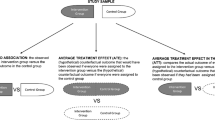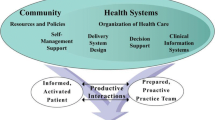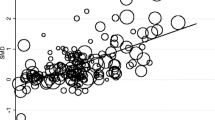Abstract
Background
Assessment of cost-effectiveness of interventions to address modifiable risk factors associated with dementia requires estimates of long-term impacts of these interventions which are rarely directly available and must be estimated using a range of assumptions.
Objectives
To test the cost-effectiveness of dementia prevention measures using a methodology which transparently addresses the many assumptions required to use data from short-term studies, and which readily incorporates sensitivity analyses.
Design
We explore an approach to estimating cost-effective prices which uses aggregate data including estimated lifetime costs of dementia, both financial and quality of life, and incorporates a range of assumptions regarding sustainability of short- term gains and other parameters.
Setting
The approach is addressed in the context of the theoretical reduction in a range of risk factors, and in the context of a specific small-scale trial of an internet-based intervention augmented with diet and physical activity consultations. MEASUREMENTS: The principal outcomes were prices per unit of interventions at which interventions were cost-effective or cost-saving.
Results
Taking a societal perspective, a notional intervention reducing a range of dementia risk-factors by 5% was cost-effective at $A460 per person with higher risk groups at $2,148 per person. The on-line program costing $825 per person was cost-effective at $1,850 per person even if program effect diminished by 75% over time.
Conclusions
Interventions to address risk factors for dementia are likely to be cost-effective if appropriately designed, but confirmation of this conclusion requires longer term follow-up of trials to measure the impact and sustainability of short-term gains.
Similar content being viewed by others
References
Handels R, Wimo A. Challenges and recommendations for the health-economic evaluation of primary prevention programmes for dementia. Aging & mental health. 2019 Jan;23(1):53–9.
Kivipelto M, Mangialasche F, Ngandu T. World Wide Fingers will advance dementia prevention. Lancet Neurol. 2018 Jan;17(1):27.
Nguyen KH, Comans TA, Green C. Where are we at with model-based economic evaluations of interventions for dementia? a systematic review and quality assessment. International psychogeriatrics. 2018 Nov;30(11):1593–605.
Meeuwsen E, Melis R, van der Aa G, Golüke-Willemse G, de Leest B, van Raak F, et al. Cost-effectiveness of one year dementia follow-up care by memory clinics or general practitioners: economic evaluation of a randomised controlled trial. PloS one. 2013;8(11):e79797–e.
Green C, Handels R, Gustavsson A, Wimo A, Winblad B, Skoldunger A, et al. Assessing cost-effectiveness of early intervention in Alzheimer’s disease: An open-source modeling framework. Alzheimer’s & dementia: the journal of the Alzheimer’s Association. 2019 Oct;15(10):1309–21.
Lin PJ, Yang Z, Fillit HM, Cohen JT, Neumann PJ. Unintended benefits: the potential economic impact of addressing risk factors to prevent Alzheimer’s disease. Health affairs (Project Hope). 2014 Apr;33(4):547–54.
Tsiachristas A, Smith AD. B-vitamins are potentially a cost-effective population health strategy to tackle dementia: Too good to be true? Alzheimer’s & Dementia: Translational Research & Clinical Interventions. 2016;2(3):156–61.
van Baal PH, Hoogendoorn M, Fischer A. Preventing dementia by promoting physical activity and the long-term impact on health and social care expenditures. Preventive medicine. 2016 Apr;85:78–83.
Zhang Y, Kivipelto M, Solomon A, Wimo A. Cost-effectiveness of a health intervention program with risk reductions for getting demented: results of a Markov model in a Swedish/Finnish setting. Journal of Alzheimer’s disease: JAD. 2011;26(4):735–44.
Brown L, Hansnata E, La HA. Economic Cost of Dementia in Australia 2016–2056, Report Prepared for Alzheimer’s Australia. Canberra: NATSEM at the Institute for Governance and Policy Analysis, University of Canberra 2017.
Ashby-Mitchell K, Burns R, Shaw J, Anstey KJ. Proportion of dementia in Australia explained by common modifiable risk factors. Alzheimer’s Research & Therapy. [journal article]. 2017 February 17;9(1):11.
Anstey KJ, Kim S, Pond CD, Cherbuin N, McMaster M, Lautenschlager N, et al. Internet-based Intervention Augmented with Diet and Physical Activity Consultation to Decrease Risk of Dementia in At-risk Adults in a Primary Care Setting: Pragmatic Randomized Controlled Trial. Journal of Medical Internet Research. 2020;Accepted for Publication.
Wang S, Gum D, Merlin T. Comparing the ICERs in Medicine Reimbursement Submissions to NICE and PBAC—Does the Presence of an Explicit Threshold Affect the ICER Proposed? Value in Health. 2018 2018/08/01/;21(8):938–43.
Neumann PJ, Cohen JT, Weinstein MC. Updating Cost-Effectiveness — The Curious Resilience of the $50,000-per-QALY Threshold. The New England Journal of Medicine. 2014 2014 Aug 28;371(9):796–7.
Brodaty H, Seeher K, Gibson L. Dementia time to death: a systematic literature review on survival time and years of life lost in people with dementia. International psychogeriatrics. 2012 Jul;24(7):1034–45.
Sachs GA, Carter R, Holtz LR, Smith F, Stump TE, Tu W, et al. Cognitive impairment: an independent predictor of excess mortality: a cohort study. Annals of internal medicine. 2011 Sep 6;155(5):300–8.
Savva GM, Arthur A. Who has undiagnosed dementia? A cross-sectional analysis of participants of the Aging, Demographics and Memory Study. Age and Ageing. 2015;44(4):642–7.
Jutkowitz E, Kane RL, Gaugler JE, MacLehose RF, Dowd B, Kuntz KM. Societal and Family Lifetime Cost of Dementia: Implications for Policy. J Am Geriatr Soc. 2017 Oct;65(10):2169–75.
Gnanamanickam ES, Dyer SM, Milte R, Harrison SL, Liu E, Easton T, et al. Direct health and residential care costs of people living with dementia in Australian residential aged care. International journal of geriatric psychiatry. 2018;33(7):859–66.
Haaksma ML, Eriksdotter M, Rizzuto D, Leoutsakos J-MS, Olde Rikkert MGM, Melis RJF, et al. Survival time tool to guide care planning in people with dementia. Neurology. 2020;94(5):e538–e48.
Strand BH, Knapskog AB, Persson K, Edwin TH, Amland R, Mjorud M, et al. Survival and years of life lost in various aetiologies of dementia, mild cognitive impairment (MCI) and subjective cognitive decline (SCD) in Norway. PloS one. 2018;13(9):e0204436.
Prince MJ, Wimo A, Guerchet MM, et al. World Alzheimer Report 2015- The Global Impact of Dementia London: Alzheimer’s Disease International 2015.
Orgeta V, Edwards RT, Hounsome B, Orrell M, Woods B. The use of the EQ-5D as a measure of health-related quality of life in people with dementia and their carers. Qual Life Res. 2015;24(2):315–24.
Australian Institute of Health and Welfare. Australia’s health 2018. Canberra: Australian Institute of Health and Welfare 2018.
Attema AE, Brouwer WBF, Claxton K. Discounting in Economic Evaluations. Pharmacoeconomics. 2018;36(7):745–58.
Devlin N, Scuffham P. Health today versus health tomorrow: does Australia really care less about its future health than other countries do? Aust Health Rev. 2020 Jun;44(3):337–9.
Plassman BL, Langa KM, McCammon RJ, Fisher GG, Potter GG, Burke JR, et al. Incidence of dementia and cognitive impairment, not dementia in the United States. Ann Neurol. 2011;70(3):418–26.
Brinks R, Landwehr S, Waldeyer R. Age of onset in chronic diseases: new method and application to dementia in Germany. Population Health Metrics. 2013 2013/05/02;11(1):6.
Wolters FJ, Tinga LM, Dhana K, Koudstaal PJ, Hofman A, Bos D, et al. Life Expectancy With and Without Dementia: A Population-Based Study of Dementia Burden and Preventive Potential. Am J Epidemiol. 2019 Feb 1;188(2):372–81.
Anstey KJ, Cherbuin N, Herath PM, Qiu C, Kuller LH, Lopez OL, et al. A self-report risk index to predict occurrence of dementia in three independent cohorts of older adults: the ANU-ADRI. PloS one. 2014;9(1):e86141.
Cherbuin N, Shaw ME, Walsh E, Sachdev P, Anstey KJ. Validated Alzheimer’s Disease Risk Index (ANU-ADRI) is associated with smaller volumes in the default mode network in the early 60s. Brain imaging and behavior. 2019 Feb;13(1):65–74.
Richard E, Andrieu S, Solomon A, Mangialasche F, Ahtiluoto S, Moll van Charante EP, et al. Methodological challenges in designing dementia prevention trials - the European Dementia Prevention Initiative (EDPI). Journal of the neurological sciences. 2012 Nov 15;322(1–2):64–70.
Clare L, Nelis SM, Jones IR, Hindle JV, Thom JM, Nixon JA, et al. The Agewell trial: a pilot randomised controlled trial of a behaviour change intervention to promote healthy ageing and reduce risk of dementia in later life. BMC Psychiatry. 2015 2015/02/19;15(1):25.
Acknowledgements
We acknowledge the ARC Centre of Excellence in Population Ageing Research.
Funding
This research was undertaken as part of the Centre for Research Excellence in Cognitive Health, which was funded by the National Health and Medical Research Council grant #1100579. Anstey is funded by NHMRC Fellowship #1102694, Zheng is part supported by the NHMRC Dementia Centre for Research Collaboration. The funders had no role in the design and conduct of this study; in the analysis and interpretation of the data; in the preparation of the manuscript; or in the review or approval of the manuscript.
Author information
Authors and Affiliations
Corresponding author
Ethics declarations
The authors followed the ethical guidelines of the Journal for this manuscript.
Additional information
Conflict of Interest
Dr McRae, Dr Zheng, Dr Bourke, and Professor Cherbuin declare that they have no conflict of interest. Professor Anstey reports personal fees from StaySharp, outside the submitted work.
Rights and permissions
About this article
Cite this article
McRae, I., Zheng, L., Bourke, S. et al. Cost-Effectiveness of Dementia Prevention Interventions. J Prev Alzheimers Dis 8, 210–217 (2021). https://doi.org/10.14283/jpad.2020.71
Received:
Accepted:
Published:
Issue Date:
DOI: https://doi.org/10.14283/jpad.2020.71




